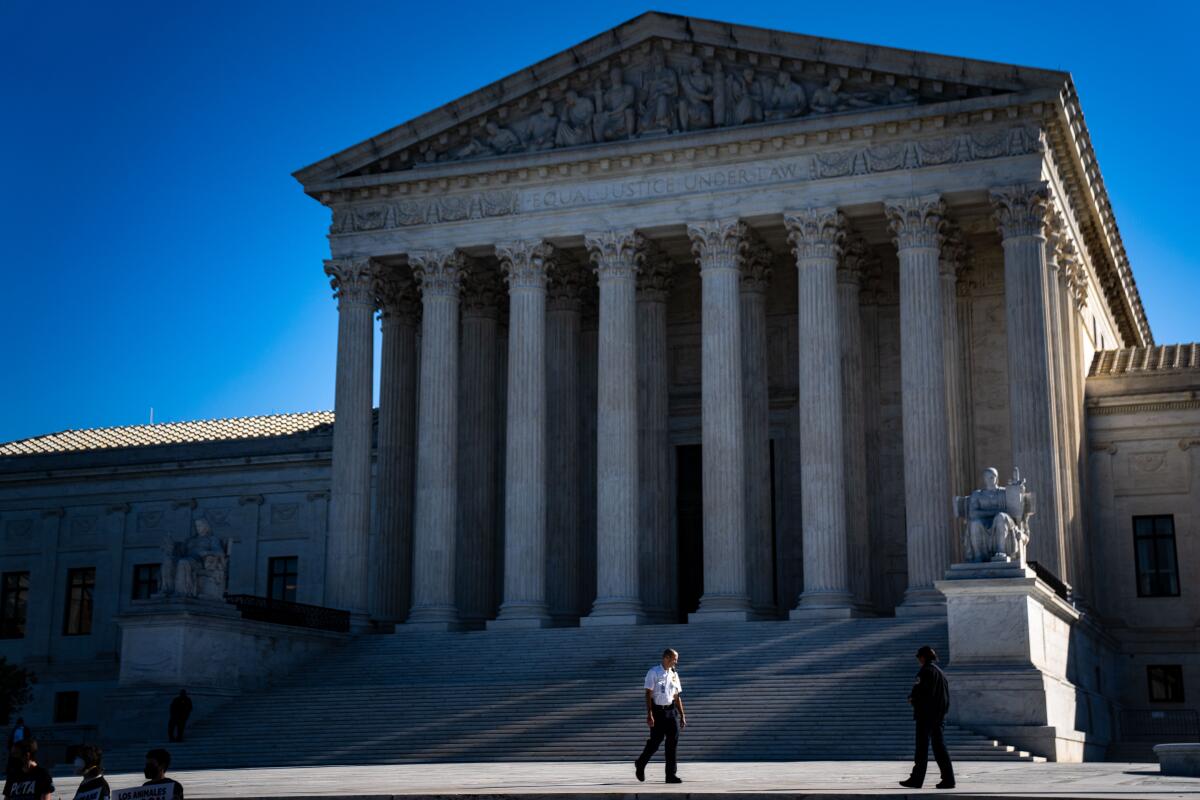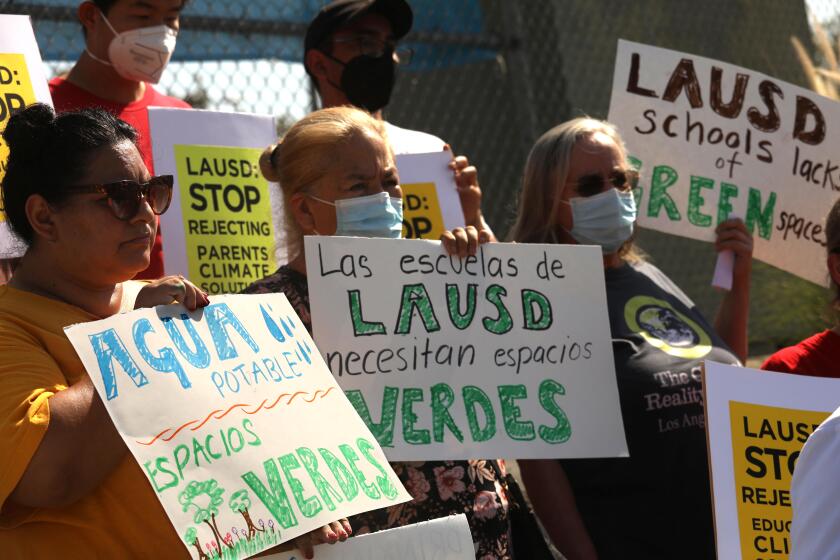Letters to the Editor: The Supreme Court’s conservatives are deluded on race and affirmative action

- Share via
To the editor: As a person who strongly believes that everyone deserves an opportunity to achieve the American dream through a college education, I was very disappointed by Supreme Court Justice Amy Coney Barrett’s question to a lawyer defending affirmative action: “Would you defend this in 2040?” (“Supreme Court’s conservatives appear ready to end college affirmative action,” Oct. 31)
This indicates Barrett does not recognize that though slavery was abolished by the 13th Amendment in 1865, Jim Crow laws persisted in much of the country until a century later, and it takes decades for people to overcome being treated like second-class citizens.
I urge Barrett to read the stories of African Americans who struggled to be recognized as worthy of becoming students at universities like Harvard.
I take pride in the fact that as the president of two community colleges in the area, I worked with many others to make our student body and staff actually look like the communities that the schools were intended to serve.
Donald L. Singer, Cardiff, Calif.
..
To the editor: While UC Irvine law Professor Aaron Tang describes in his op-ed article good reasons for keeping affirmative action, he does not fully explore the negatives it accrues.
Affirmative action does not add opportunities, but it can effectively take away from others. That makes it a quota system, and quotas are ultimately counterproductive.
Carve-outs like affirmative action also allow beneficiaries effectively to obtain something with less merit. That turns it into an entitlement program, and those tend not to go away.
As bad as the effects of past biases against currently marginalized segments of the population have been, affirmative action fosters a system that is worse. Yes, creating full equality of opportunity will take more time without affirmative action, but there really isn’t a better way.
Harvey Cohen, Diamond Bar
..
To the editor: Challenging the fairness of affirmative action in oral arguments, Justice Samuel A. Alito Jr. offered a metaphor: If you let one runner start five yards closer to the finish line, the one who doesn’t get that plus factor is disadvantaged, right?
The metaphor rests on what we assume about a footrace: They have the same headwind or tailwind and face an equal number and positioning of any hurdles.
After the Civil War, we had another century of explicitly excluding African Americans (and, by degrees, other minorities) from rights and opportunities, and a further half-century of foot-dragging and veiled obstruction of equality as progress inched along.
Believing that we now have a fair competition in life, where results are based entirely on individual effort and ability, displays either a profound ignorance of the effects of our racial past and present, or it shows willful delusion.
Michael Maniccia, Alhambra






